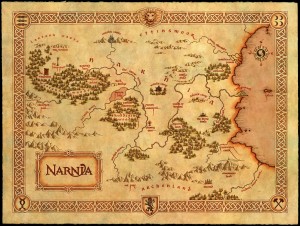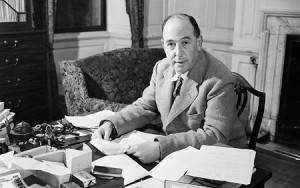 What makes a fantasy novel great? Ask ten people and they will each give you a different answer. Greatness is in the mind of the reader.
What makes a fantasy novel great? Ask ten people and they will each give you a different answer. Greatness is in the mind of the reader.
Rather than rely on personal opinion for greatness, we are attempting to create a list of the greatest fantasy novels of all time using objective evidence.
As with our list of the greatest science fiction novels of all time, we evaluate the awards a novel has received. After all, if the “experts” recognize the novel by selecting it for an award, then it truly must be great. Yes, awards are handed out subjectively, but a broad sampling of awards and audiences can provide an objective metric.
The second portion of a novel’s greatness is its commercial success. Of course, commercial success is frequently achieved by very badly written novels, but a novel’s success can add to the case for a novel’s greatness. It cannot however be used as the sole criteria.
Great novels serve as sources of inspiration and imitation. We will explore the influences a novel has on society as well as the cultural impact of each novel.
Our list of fantasy novels varies from the list of science fiction novels. Science fiction novels are more frequently standalone works. Some in our list belong to a series, but each can stand on its own merits. Fantasy novels are a bit more complicated. Many of the greatest fantasy novels of all time are part of a series, but they differ from the science fiction novels in that they must be taken as a set.
In these cases, we will refer to the series and highlight the novel which stands out amidst the series. While some authors might argue that their seven novels are really only one novel, we will attempt to focus on the single best installment of the series.
Some ongoing novels may be considered even though they are not complete. A complete story requires a beginning, a middle, and an end. A few modern fantasy novels have one beginning to go along with many volumes of middle, but no end.
Now that we’ve revisited the rules, let’s review our list so far.
The Greatest Fantasy Novels of All Time
- The Lord of the Rings by J. R. R. Tolkien (Best Novel Awards: International Fantasy Award 1957, Prometheus Hall of Fame Award 2009)
- Paladin of Souls by Lois McMaster Bujold (Best Novel Awards: Hugo 2004, Locus 2004, Nebula 2004; Nominations: Mythopoeic 2004)
- Harry Potter and the Goblet of Fire by J. K. Rowling (Best Novel Award: Hugo 2001)
- Alice’s Adventures in Wonderland by Lewis Carroll
- A Storm of Swords by George R. R. Martin (Best Novel Award: Locus 2001, Geffen 2002, Ignotus 2006; Nominations: Nebula 2001, Hugo 2001)
- The City & The City by China Miéville (Best Novel Award: Locus 2010, Clarke 2010, World Fantasy 2010, BSFA 2009, Kitschies 2009, Hugo 2010; Nominations: Nebula 2010, Campbell 2010)
- Jonathan Strange & Mr. Norrell by Susanna Clarke (Best Novel Award: Time 2004, Hugo 2005, World Fantasy 2005, Locus First Novel 2005, Mythopoeic 2005, British Book Newcomer 2005; Nominations: Man Booker 2004, Whitbread 2004, Guardian 2004, British Book Literary 2005, Nebula 2005)
- The Book of the New Sun by Gene Wolfe (Best Novel Award: BSFA 1981, World Fantasy 1981, Campbell 1984, Locus 1982, Locus 1983, Nebula 1982, Derleth 1983; Nominations: Balrog 1981, Balrog 1983, Balrog 1984, Campbell 1981, Locus 1981, Locus 1984, Nebula 1981, Nebula 1983, Nebula 1984, BSFA 1982, BSFA 1983, World Fantasy 1982, World Fantasy 1983, Hugo 1982, Hugo 1983, Mythopoeic 1982)
The Lion, the Witch and the Wardrobe by C. S. Lewis
 Title: The Lion, the Witch and the Wardrobe
Title: The Lion, the Witch and the Wardrobe
Author: C. S. Lewis
First Year Published: 1950
The Lion, the Witch and the Wardrobe is a groundbreaking novel that helped pave the way for every fantasy novel published since. The amazing C. S. Lewis wrote the novel for children in the 1940s. When it was widely published in 1950, many parenting experts considered the content of the novel harmful to the proper development of children.
You see, back in the 1940s and 1950s, adults felt that children should spend their time reading tales set in reality. Imaginary worlds had no place in the education of our children. How could youth ever develop into healthy members of society if they were allowed to read such escapist fiction?
Fortunately, increasing sales helped keep the publisher strong. Had the fearmongers been able to dissuade the publisher, we might never have seen a time when thousands of fantasy novels are published each year.
When The Lion, the Witch and the Wardrobe was published, C. S. Lewis was already well known for the Christian books he had published. It was not much of a surprise to his fans that his fantasy alluded to the death and resurrection of Jesus Christ.

The Lion, the Witch and the Wardrobe was the first published novel in Lewis’ The Chronicles of Narnia series. Easily, it is the most popular, having been adapted three times for television, six times for the theater, and once for a Disney produced film.
The novel has inspired countless references in theater, film, and fiction. The long running television series Doctor Who even paid tribute with its 2011 episode “The Doctor, the Widow and the Wardrobe”.
To date, The Chronicles of Narnia series has sold more than 120 million books worldwide.
The Lion, the Witch and the Wardrobe helped form the fantasy novel blueprint with the coming of age story of four siblings escaping London during World War II. The young protagonists find themselves transported through a wardrobe into the magical world of Narnia. There they grow into positions of leadership and power.
Further evidence of the novel’s greatness can be found in the many lists that cite The Lion, the Witch and the Wardrobe as one of the best novels written in the English language.
In writing the novel, C. S. Lewis forged a path for all of the fantasy novels that have followed. The Lion, the Witch and the Wardrobe is one of the greatest fantasy novels of all time.
Catch up on the other Greatest Fantasy and Greatest Science Fiction novels of ALL TIME! (images link to the posts)
































